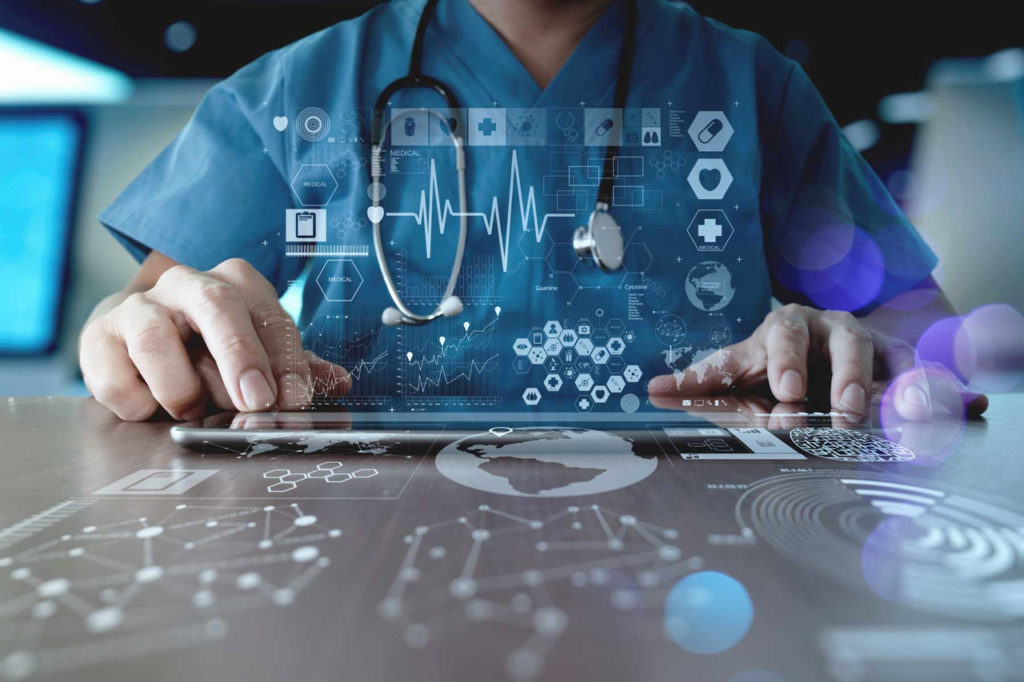
In a world perpetually advancing in technology, the realm of medicine stands as a beacon of groundbreaking innovations. The continuous evolution of medical science not only transforms healthcare but also saves countless lives. In this exploration, we delve into the intricate science underpinning these revolutionary medical innovations, unraveling the mysteries of progress that shape the future of medicine.
Read More: 13 Ways to Harness the Power of Science in 2024
Historical Context of Medical Innovations
To understand the present, we must appreciate the past. Moments like the discovery of antibiotics or the development of vaccines have defined the trajectory of medical advancements. These historical landmarks not only showcase the resilience of human ingenuity but also highlight the profound impact of medical breakthroughs on public health.
Fundamentals of Medical Research

At the core of every medical breakthrough lies a rigorous scientific process. The scientific method, a systematic approach involving observation, experimentation, and analysis, ensures the reliability of results and the validity of conclusions. This methodical approach is the backbone of medical research, guiding researchers toward innovations that stand the test of time.
Emerging Technologies in Medicine
Today, cutting-edge technologies play a pivotal role in pushing the boundaries of medical possibilities. Robotic surgery, telemedicine, and the integration of artificial intelligence are reshaping the landscape of healthcare. These technological advancements not only make healthcare more accessible but also enhance its efficiency, heralding a new era in medical practice.
Genomic Medicine: Unraveling the Genetic Code
The decoding of the human genome has ushered in a new era in medical research. Genomic medicine, with its focus on understanding the genetic basis of diseases, has paved the way for targeted therapies and personalized treatment plans. This approach tailors medical interventions to an individual’s unique genetic makeup, unlocking unprecedented precision in healthcare.
Precision Medicine: Tailoring Treatment to Individuals
Taking customization to the next level, precision medicine considers an individual’s genetic makeup, lifestyle, and environment to tailor treatments. This approach not only improves treatment efficacy but also minimizes side effects, marking a paradigm shift in how we approach healthcare on an individual basis.
Nanotechnology in Healthcare
Nanotechnology, operating at the molecular and atomic level, has opened doors to innovative diagnostic and therapeutic tools. From targeted drug delivery systems to advanced imaging technologies, nanotechnology is revolutionizing healthcare by offering solutions at an unprecedented scale.
AI and Machine Learning in Medical Research
Artificial intelligence (AI) and machine learning algorithms are becoming invaluable assets in medical research. These technologies analyze vast datasets, identify patterns, and assist in diagnosis and treatment planning, significantly enhancing the capabilities of healthcare professionals. The marriage of machine intelligence and medical expertise is a driving force behind numerous breakthroughs.
Bioengineering and Regenerative Medicine
The frontier of bioengineering explores the creation of artificial organs and tissues, offering hope for patients awaiting transplants. Regenerative medicine focuses on stimulating the body’s natural healing processes, paving the way for tissue regeneration and repair. These fields not only address organ shortages but also hold promise for treating previously incurable conditions.
Challenges and Ethical Considerations
As we marvel at the strides in medical innovation, it is crucial to acknowledge the challenges and ethical dilemmas that accompany progress. Striking a balance between scientific advancement and ethical responsibility is a continuous challenge faced by the scientific community. Ethical considerations are paramount to ensuring that the benefits of medical breakthroughs are responsibly and equitably distributed.
Global Impact of Medical Breakthroughs
Medical breakthroughs transcend geographical boundaries, impacting healthcare globally. However, the accessibility of these innovations varies, raising questions about equity in healthcare. Bridging these gaps is essential for ensuring that everyone, regardless of their location or socio-economic status, benefits from the progress in medical science.
Future Trends in Medical Research

The journey of medical innovation is far from over. Predicting future trends involves exploring emerging technologies, understanding evolving diseases, and anticipating the needs of an ever-changing society. The possibilities are vast, offering hope for even more remarkable breakthroughs in the years to come. The integration of data science, advanced imaging, and a deeper understanding of molecular biology are likely to drive future innovations.
Patient Stories: Real-Life Impact of Medical Breakthroughs
Behind every medical advancement are real people whose lives have been transformed. Personal stories highlight the tangible, human impact of breakthroughs, emphasizing the importance of continued research and innovation. These narratives connect the audience to the profound impact that medical science has on individuals and communities.
Collaboration and Interdisciplinary Approaches
The complexity of medical challenges necessitates collaboration across diverse fields. When researchers, engineers, and healthcare professionals join forces, groundbreaking solutions emerge. Interdisciplinary approaches foster creativity and open new avenues for exploration, underscoring the importance of a holistic perspective in medical research.
Read More: AI Startup Gives You A New Face To Protect Your Medical Privacy
FAQs
- How do medical breakthroughs impact everyday healthcare? Medical breakthroughs enhance the effectiveness and accessibility of healthcare, leading to better treatments and outcomes for patients.
- What role does collaboration play in medical research? Collaboration between diverse fields fosters creativity and accelerates the pace of medical discoveries, resulting in more holistic solutions.
- Are there potential risks associated with rapid medical advancements? While medical progress brings significant benefits, it also raises ethical dilemmas and challenges that need careful consideration.
- How can individuals contribute to medical innovation? Supporting research initiatives, staying informed, and participating in clinical trials are ways individuals can contribute to medical innovation.
- Where can I learn more about the latest medical breakthroughs? Stay updated on reputable medical journals, research institutions, and healthcare news sources for the latest information on medical advancements.
The Final Words
The science behind groundbreaking medical innovations is a captivating journey through history, technology, and human perseverance. As we navigate the complexities of ethical considerations and global accessibility, the promise of future advancements keeps the flame of progress burning bright. Understanding this science is not just about appreciating the present but also embracing the limitless possibilities that lie ahead.








One Comment